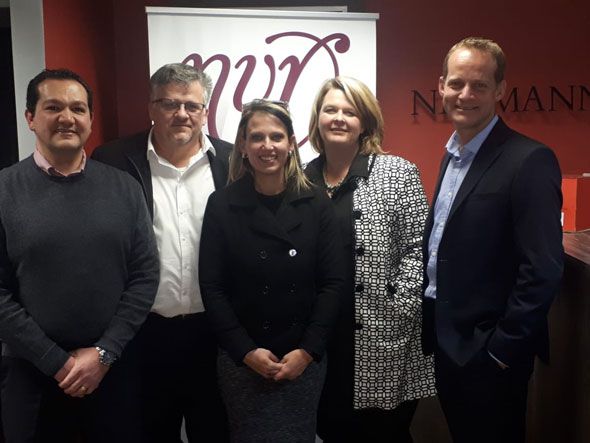






The property of Zelda Lendon (68) was registered in the Bloemfontein Deeds Office early July with the Power of Attorney to Transfer Property electronically signed by both the client and the conveyancer. The electronic signing was completed using one of the country’s leading digital signature platforms, Lexis Sign, which is underpinned by the Electronic Communications and Transactions (ECT) Act and also meets international standards for digital signatures.
Although the documents still had to be lodged manually, the process marked a giant leap forward in the Bloemfontein Deeds Office’s ongoing quest for innovation that improves deeds registration. With only nine deeds offices in the country, the global move towards digital signatures could help to overcome some of the efficiency, cost and logistics challenges experienced in the conveyancing field.
Conveyancing attorney, Gerda Janse van Rensburg, from innovative firm, Neumann van Rooyen Attorneys in Welkom, took this ground-breaking step to use electronic signatures on documents registered in the highly regulated Deeds Office.
She said: “This will hopefully evolve into a complete electronic property registration and mortgaging system in the near future. It will drastically improve property registration turnaround times benefitting Sellers, Purchasers, Estate Agents and credit providers alike.”
Property owner Lendon agreed that the process was fast and hassle free, saying: “What a painless, efficient and fast process. It made my transaction so much smoother and I am excited to be a part of this initiative.”

The Electronic Communications and Transactions Act Chapter 3 part 1 gives legal recognition to electronic documents and recognises that electronic documents and signatures can serve as the electronic functional equivalent of their paper-based counterparts.
Although the ECT Act does not prescribe what type of technology must be used, examples of electronic signatures include: your typed name at the end of your e-mail, signing with signature tablets used in banks and other retailers and the so-called digital signature, among others.
The ECT Act also creates a special type of electronic signature, known as an “advanced electronic signature” (AES), which is a particularly reliable form of signature. Where a law (such as the Deeds Registries Act) requires a signature, only an AES will be valid. The use of an AES by conveyancer is a legal requirement for the Power of Attorney to Transfer Property.
Ewald Scheepers, Divisional Executive for LexisNexis South Africa’s Business Software Solutions division, which provides the Lexis Sign platform, said: “This technological advancement can fundamentally change the conveyancing industry in South Africa, setting the precedent that electronic documents can be used throughout the conveyancing process with only submission into the deeds office requiring printing.”
He added: “LexisNexis has already enabled thousands of documents and contracts worth more than R30bn to be signed electronically. The Lexis Sign platform allows users to upload any PDF document to be signed and eliminates the need to print, sign, scan and email through a simple, secure entirely web-based platform that does not require additional hardware or devices. It is mobile and speedy, enabling documents to be signed anywhere, any time and on any device.”
Lexis Sign is one of a slew of innovative solutions from LexisNexis that have transformed the conveyancing profession over the past 40 years. LexisNexis has entrenched itself as a leader in the conveyancing sector, with pioneering solutions for all players in the property industry, including Lexis WinDeed, Lexis Agent IQ, Lexis Prop IQ, Lexis Connect, Lexis DocAssembly and Lexis Convey.
Scheepers said digital signing of conveyancing documents could assist with the industry’s future adoption of an Electronic Deeds Registration System, or e-DRS. The Department of Rural Development and Land Reform is working towards the establishment of such a system.
For further information on Lexis Sign, visit www.lexisnexis.co.za/lexissign.